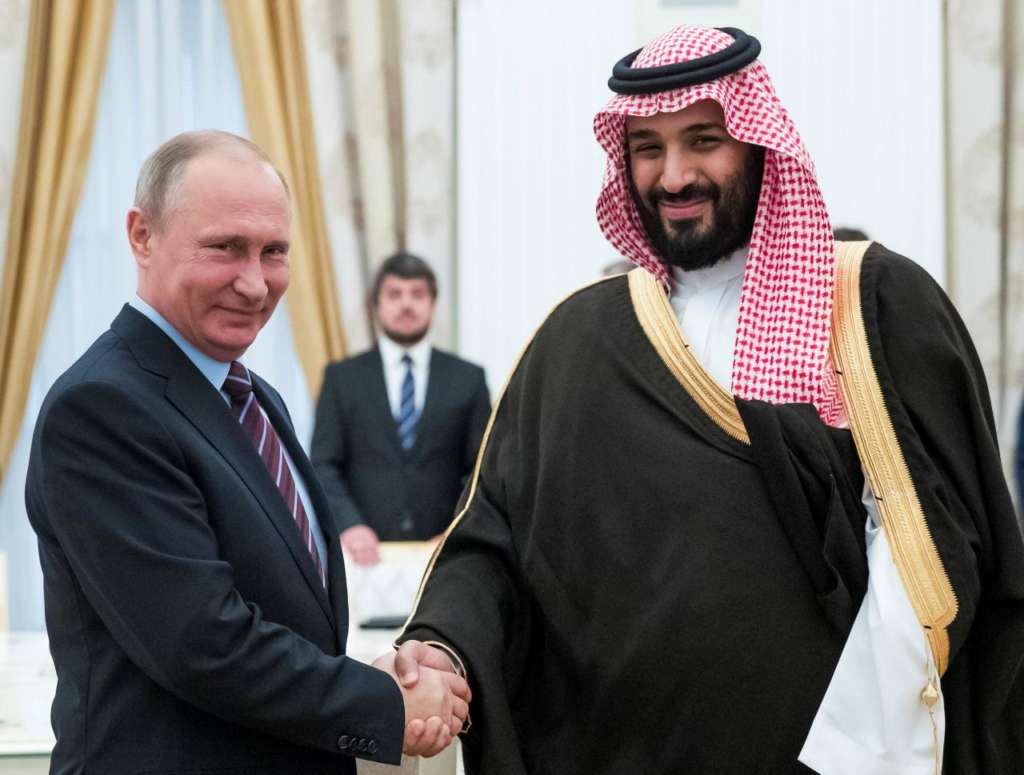After Saudi King Salman’s visit to Moscow ended with serious talks over two major military agreements, it seemed more pressing than ever to delve into the why behind Riyadh gravitating closer towards importing all sorts of arms deals in an unprecedented manner.
The matter of the fact is that Saudi Arabia faces considerable foreign threats emerging from the growing Iranian menace and America’s receding commitment to defend it.
Iranian threats increased across all Saudi borders. From the north, Tehran expanded its influence in Iraq and Syria in the north, while on the southern front has meddled with Yemen’s civil war.
Tehran would have tightened its grip on the entire region had the Muslim Brotherhood’s rule in Egypt lasted under the presidency of Mohammed Mursi.
As for the regressive American protection policy, the Obama administration bluntly dashed the “Saudi Arabia’s security is part of the US’ security” notion in the sense of serving America’s higher interest.
Henceforth, Saudi leadership was put up before a single option: enhancing national defensive capabilities.
For Western governments, there is always a close relationship between arms’ sales and foreign policies. This relation links deals to conditions and it may restrain them for political considerations.
US former President Obama’s administration had suspended its supplies of ammunition to Saudi Arabia and deprived it of intelligence cooperation due to disputes over the war in Yemen.
It is not strange that some American state institutions and some Congressmen opposed deals with Saudi Arabia or other countries. Many deals struggle due to opposition figures lobbying against them. There are hostile groups working against Saudi Arabia and some that accuse it of carrying out military operations against civilians in Yemen.
In addition, there are lobbyists doing the bid of anti-Saudi powers. Despite all this, it is the president who makes decisions based on American interests.
The military deal with Russia is not an alternative to US weapons and it does not aim to distance the kingdom from the US, as some people had suggested in their analogies.
King Salman’s visit to Moscow was the first official visit by a Saudi monarch to Russia. It was critical in terms of Saudi efforts in stabilizing oil market and mitigating Moscow’s Iran policy.
Iran’s growing threat that is forcing Riyadh to be stronger than it ever was, buying Russian and Chinese weapons will liberate it from US pressure. In case the US suspends its supply of ammunition or prevents it from using its weapons in any upcoming war, Riyadh will have other options.
The arsenal that Saudi Arabia will have two alternative missile defense systems that stand against Iranian attacks or any other attack: the American THAAD and the Russian S-400.
After possessing several resources, Saudi Arabia will not go through what it went through two years ago in Yemen.
Gulf countries, whose neighbors lurk in resourcefulness, must strengthen defense policies, not just by buying more weapons but also by improving military institutions performance and developing scientific and industrial work.
Truth be told, this is what Saudi Crown Prince Mohammed bin Salman has effectively put in action.
Crown Prince Mohammed is reformulating the concept of Saudi military might away from media spotlight.
It is the Gulf countries’ fate to live in a region swamped with wars and chaos. Saudi Arabia is forced to think that military superiority is more than sealing arms deals as it is also a doctrine that relies on science, discipline and developing industries.
It is a comprehensive system. This is what Israel, which is the largest importer of weapons, also believes. The peak of excellence is for armament not to become a burden on the state, a reason for bankruptcy or a weak point– as it must be a path for development, growth and peace.
